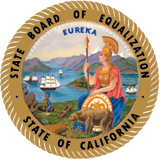Low-Value Ordinance Exemption
A county board of supervisors may, under certain circumstances, exempt property that does not exceed a specified (low) value. In some cases, the total taxes, special assessments, and applicable subventions on a property would amount to less than the cost of assessing and collecting them (authorized by Section 7 of Article XIII, Revenue and Taxation Code section 155.20). This ordinance was enacted to recognize the practical reality that, notwithstanding the constitutional requirement that all property be taxed, certain assessments are not cost effective to pursue. In other words, the value of a property is too low to justify the costs of assessment and collection. This exemption is commonly referred to as the Low-Value Ordinance Exemption.
On an annual basis, each county board of supervisors has the discretion to determine the maximum value in which real or personal property in their county can not exceed to qualify for the Low-Value Ordinance Exemption. However, they have no authority to exempt real property with a base year value, or personal property with a full value, of more than $10,000.
The possessory interest (a possessory interest is created when a person or entity uses publicly owned real property which becomes subject to property tax assessment) low-value ordinance is set considerably higher than the real or personal property limit. For a temporary and transitory use in a certain public facilities, the maximum value that a county board of supervisors may exempt under the low-value ordinance may not exceed $50,000 (section 155.20(b)). The allowable facilities include publicly owned:
- Fairgrounds
- Fairground facilities
- Convention or Cultural facilities, which includes publicly owned convention centers, civic auditoriums, theaters, assembly halls, museums, or other civic buildings, that is used primarily for staging any of the following:
- Conventions, trade and consumer shows, or civic and community events
- Live theater, dance, or musical productions
- Artistic, historic, technological, or educational exhibits
Property excluded from this low value exemption (section 155.20(c)) consists of:
- Open space lands and property of historical significance (Article XIII, Section 8)
- Immature forest trees planted on lands not previously bearing merchantable timber or planted or of natural growth … (Article XIII, Section 3 (j)).
- Non-profit golf courses (Article XIII, Section 10).
- Lands owned by local governments that are outside their boundaries (Article XIII, Section 11).
This exemption does not require the claimant to file any claim forms. It is an administrative exemption on the county's option. For information on the Low-Value Ordinance Exemption, contact the county assessor of the county where the property is located.
